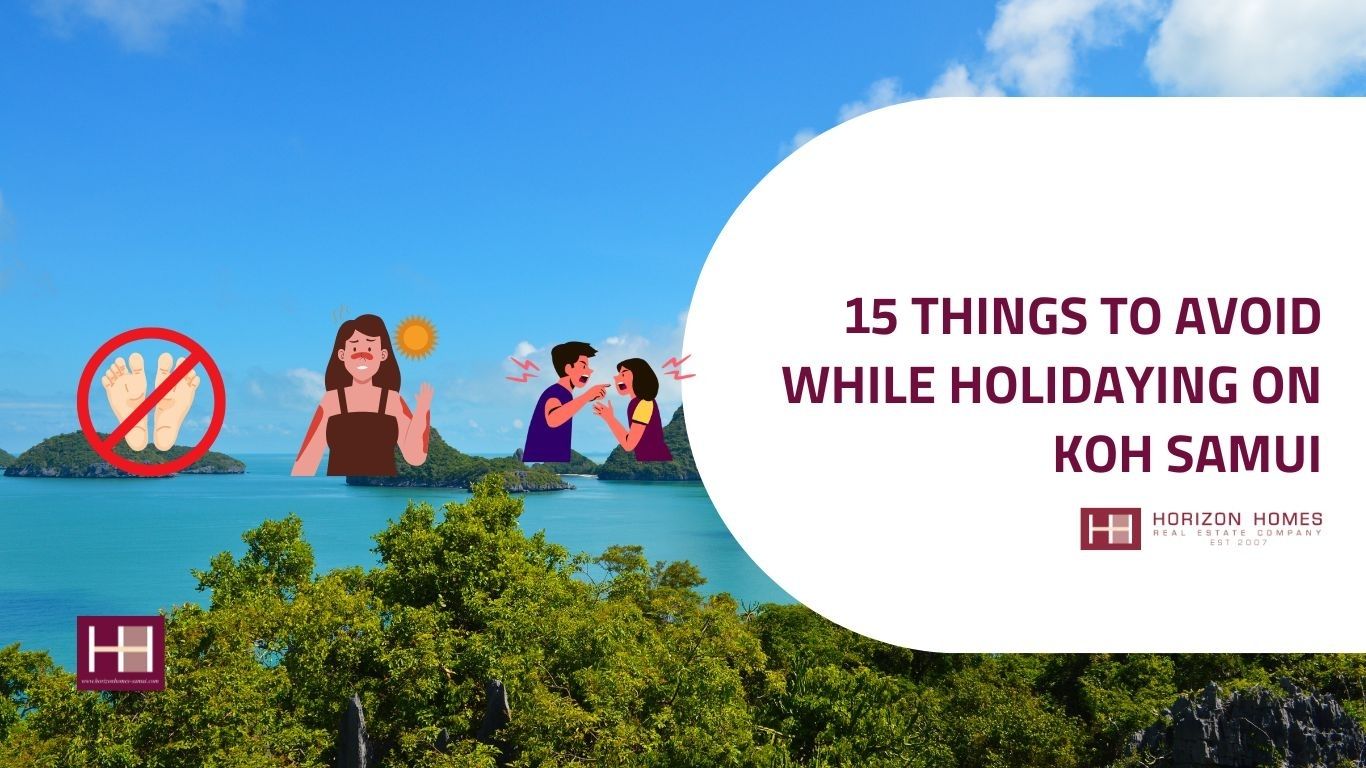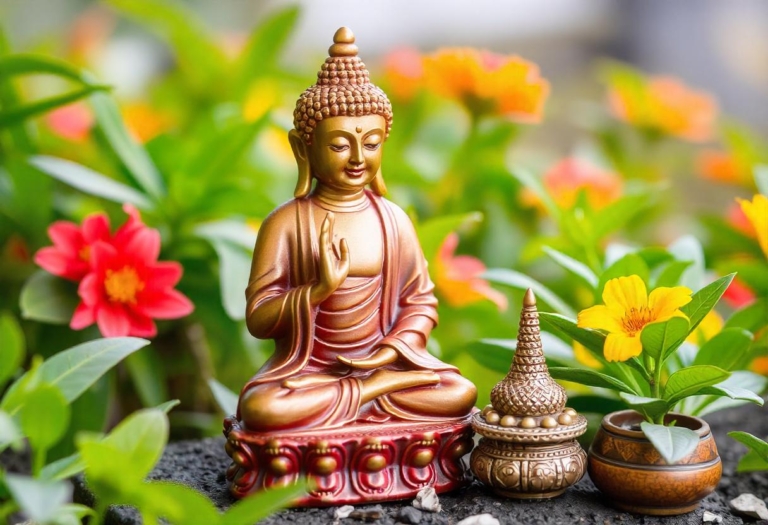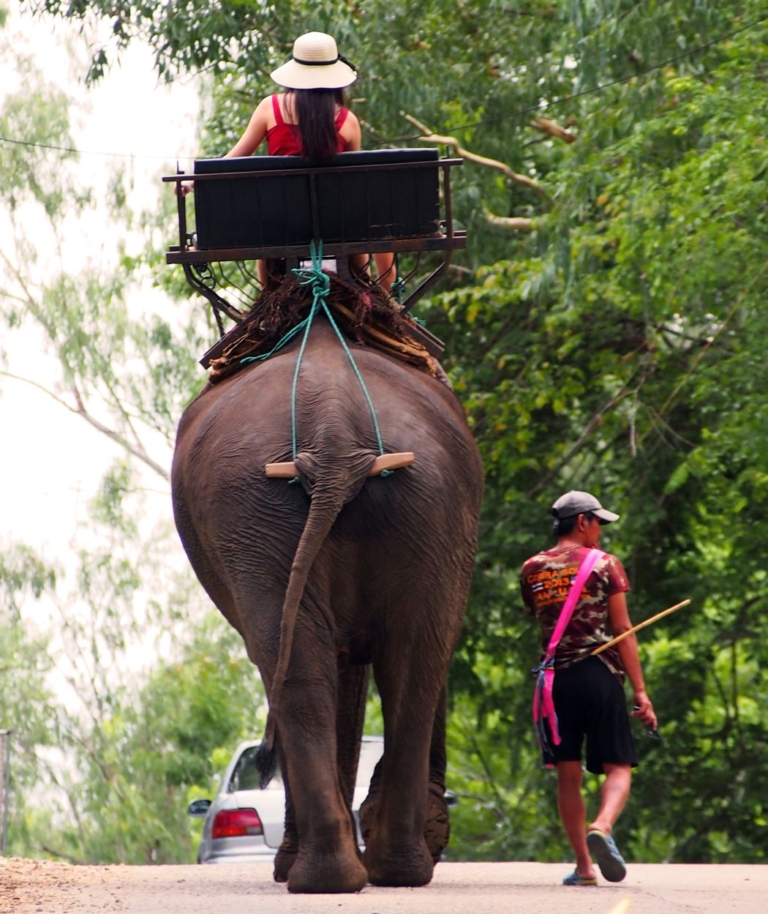Koh Samui is a tropical paradise known for its crystal clear aqua waters, green coconut palms, and clean, crisp ocean air. While enjoying this beautiful destination, it’s important to be aware of some cultural norms and practices to ensure you have a respectful and enjoyable stay. Here are the top 15 things to avoid while holidaying on Koh Samui:
1. The Royal Family
In Thailand, the monarchy is held in the highest regard, and the country has strict lèse-majesté laws that criminalize any form of criticism or disrespect toward the Royal Family. Even casual jokes or seemingly harmless remarks can result in severe legal consequences, including imprisonment. These laws apply to both locals and tourists, and offenses can be reported by anyone, so it’s crucial to exercise extreme caution when discussing the Royal Family.
In addition to the monarchy, Buddhist monks hold a revered position in Thai society. Monks are given special privileges and should always be treated with the utmost respect. In public transport, there are often seats reserved exclusively for monks. Even if the bus or train is crowded, never sit in these designated seats. It is also important for women to avoid physical contact with monks, as Buddhist tradition prohibits it. If a woman needs to hand something to a monk, it should be done through a male intermediary or placed directly in front of him, allowing him to pick it up without direct handoff.
2. Buying Buddha Souvenirs in Thailand
Although there are many souvenir items that you can purchase in Thailand. But it might be quite interesting to bring home a statue of Buddha. You can use it as decoration or an addition to your Zen Garden. But getting it out of the country, however, might not be as easy. So when shopping for statues, which measure five inches and above, make sure that it comes with an export permit from the local store. Otherwise, you might have problems during your departure.
You have an option though to have the owner of the handicraft shop obtain a permit for you. If he is willing, you might have to wait for a day or two. So if you want to purchase one without the necessary document, do it way ahead of time. Another simple alternative is to buy portraits instead. It would still make a great accent for your house. And you can get it without the hassle. But if you still prefer the solid figure, then buying the smaller ones would be a better idea. This way, it would be easier for you to pack it along with the rest of your souvenirs.
3. Disregarding Local Customs
Avoid disrespecting local traditions and customs, especially related to Buddhism. Buddhism plays a central role in Thai culture, and respecting Buddhist customs is important, particularly on Koh Samui. When visiting temples, ensure you dress modestly. For men, wearing long pants and shirts that cover your shoulders is essential. Women should also wear clothing that covers their shoulders and knees.
Avoid loud talking or inappropriate behavior, as temples are sacred spaces meant for reflection and prayer. Also, refrain from touching Buddhist statues or pointing your feet at them as it’s considered highly disrespectful. Remember that monks should not be touched by women, so maintain a respectful distance.
4. Participating in Unethical Activities
Avoid engaging in activities that exploit animals, such as elephant rides or visiting poorly maintained animal shows. Many animal attractions in Thailand, including Koh Samui, do not adhere to ethical standards, and the welfare of the animals may be neglected. Elephant rides are particularly harmful because the training process, known as “the crush,” often involves abuse to tame the animals. Instead, visit ethical sanctuaries where animals are rescued, rehabilitated, and treated with respect.
Additionally, avoid visiting places where animals, such as tigers or monkeys, are kept in cages for photo opportunities, as these activities often involve cruel practices behind the scenes.
5. Ignoring Sun Protection
The tropical sun can be intense. Avoid sunburn by using sunscreen, wearing protective clothing, and staying hydrated. Koh Samui’s tropical climate means you’re exposed to intense sunlight, especially during the hotter months. Prolonged exposure without protection can lead to painful sunburns and heatstroke.
Apply sunscreen with at least SPF 30 regularly, especially after swimming or sweating. Wearing hats, sunglasses, and light, long-sleeved clothing can also provide additional protection. Drink plenty of water throughout the day to prevent dehydration, and seek shade when the sun is at its strongest, typically between 10 a.m. and 4 p.m.
6. Drinking Tap Water
It’s best to avoid drinking tap water. Stick to bottled water to prevent potential stomach issues. While tap water in Koh Samui is generally not safe to drink, bottled water is widely available. Always ensure the seal on the bottle is intact before drinking. If you’re staying at a hotel or a rental property, it’s also a good idea to brush your teeth with bottled water.
Avoid using ice in your drinks if you’re unsure about its source, as ice made from untreated tap water can also lead to digestive issues. Many travelers carry portable water filters, but bottled water remains the safest option.
7. Neglecting Travel Insurance
Avoid traveling without insurance. It’s essential for covering unexpected medical expenses or trip cancellations. Medical costs in Thailand can be high, especially for treatments in private hospitals. Travel insurance can cover not only medical expenses but also lost baggage, canceled flights, or unexpected events like natural disasters.
Koh Samui is known for outdoor activities like hiking, diving, and motorbike riding, which carry some risk. Comprehensive travel insurance ensures peace of mind, whether you face an accident, illness, or trip disruption. It’s a small price to pay for safeguarding your travel plans and avoiding significant financial loss.
8. Feet Etiquette
Avoid exposing the soles of your feet in plain view and take care not to rest your feet on a table or point them toward a person or a Buddhist monument. In Thai culture, feet are considered the most impure part of the body, and pointing your feet toward someone or a religious object is seen as very rude. When sitting, avoid pointing your feet directly at others or religious icons, and don’t prop your feet up on furniture.
Always remove your shoes when entering temples, homes, or certain businesses, as a sign of respect. When visiting religious sites, keep your feet flat on the ground and sit in a manner that avoids pointing them at statues or people.
9. Nude Bathing
Nude and topless swimming and sunbathing are deeply offensive to many people, especially Samui’s many Muslims. While Koh Samui is generally liberal regarding beachwear, nudity and topless sunbathing are not acceptable, even at the beach. Many parts of Koh Samui are home to Muslim communities, and public nudity can be especially offensive.
Always wear appropriate swimwear and ensure that you’re covered when you’re not at the beach or by the pool. Swimsuits and beachwear should not be worn while walking around town or visiting temples. Pack lightweight cover-ups or sarongs to ensure you’re always dressed modestly when away from the beach.
10. Ignoring Traffic Rules
Traffic can be chaotic. Avoid renting a motorbike unless you’re experienced, and always wear a helmet. Traffic on Koh Samui can be unpredictable, with narrow roads, frequent potholes, and drivers often ignoring standard traffic laws. If you’re not used to driving in such conditions, it can be dangerous to rent a motorbike.
Additionally, many tourists end up in accidents due to the island’s challenging road conditions. If you do rent a motorbike, wearing a helmet is mandatory (and fines are often imposed for non-compliance). Also, ensure you have a valid international driving license, as police frequently stop tourists for spot checks.
11. Overpacking
Koh Samui has a laid-back vibe, so avoid bringing too many formal clothes. Pack light, casual clothing suitable for the beach and warm weather. Koh Samui is a tropical island known for its relaxed, informal atmosphere. Pack light, breathable clothing, as the weather is warm and humid year-round. Casual beachwear and lightweight, comfortable outfits are ideal for most occasions, whether you’re exploring the island, lounging on the beach, or dining out.
Don’t worry about bringing formal attire unless you plan to attend a specific event. A few light layers for cooler evenings or air-conditioned restaurants may be useful, but overall, a minimalist approach to packing is recommended.
12. Falling for Tourist Traps
Be cautious of overly touristy attractions or restaurants that seem overpriced or have bad reviews. Like many tourist destinations, Koh Samui has its fair share of attractions and restaurants designed to exploit visitors with high prices and poor quality. To avoid these traps, research your activities and dining options in advance.
Reading online reviews or asking locals for recommendations is a great way to ensure you find authentic experiences. Be wary of places that heavily advertise or seem too focused on catering to tourists, as they may not offer genuine value. Opt for local markets and smaller, family-owned restaurants for a more authentic and budget-friendly experience.
13. Bargaining Inappropriately
While haggling is common in markets, avoid being overly aggressive or disrespectful. Haggling is a normal part of shopping in Koh Samui’s markets, but it should always be done with a friendly and respectful attitude. Approach negotiations with a smile, and don’t take it too seriously. It’s more of a playful interaction than a strict business transaction.
Start by offering a lower price than what you’re willing to pay, and gradually work your way up. However, avoid pushing too hard or being rude, as this can offend the seller. Always remember that the goal is to reach a fair price for both parties.
14. Losing Your Cool
For cultural and religious reasons, Thais will avoid a confrontation at all costs and consider shouting and swearing extremely uncouth and uncivilized. If you find yourself in a difficult situation, raising your voice or using bad language will not bring the desired result. Remain softly spoken, and try to win the day with politeness and persistence. The Thai you are speaking to will likely honor you for possessing that most treasured of Thai traits, “A Cool Heart.”
15. Leaving Bad review
When writing reviews about businesses in travel destinations like Koh Samui, it’s important to understand the potential legal implications of your words. In many jurisdictions, including Thailand, leaving a negative review can sometimes lead to claims of defamation.
Defamation laws are designed to protect individuals and businesses from false statements that could harm their reputation. If a review includes false information or exaggerates negative experiences, it could misrepresent the facts and lead to legal action. For instance, falsely claiming that a hotel has unsanitary conditions when it is clean could be grounds for a defamation claim.
In Summary
A visit to Thailand is a culturally fascinating experience. Thai people are extremely warm and hospitable. Exercising a little awareness and consideration when visiting their country will make your stay there all the more enjoyable.
Crystal clear aqua waters, green coconut palms, and clean, crisp ocean air are all part of what makes Koh Samui the pictorial image of a tropical paradise. For a truly unforgettable Koh Samui experience, you can’t go past a stay in an incredible luxury villa. Holidaying in one of Thailand’s villas will provide unparalleled comfort, privacy, and luxury.
Many Koh Samui villas lie right on the pristine sands and we have many contemporary villas that are built in traditional Thai style, adding to your holiday experience and giving you a true feel for Thai culture while still pampering you with every imaginable luxury, convenience, and creature comfort. Paradise awaits!




